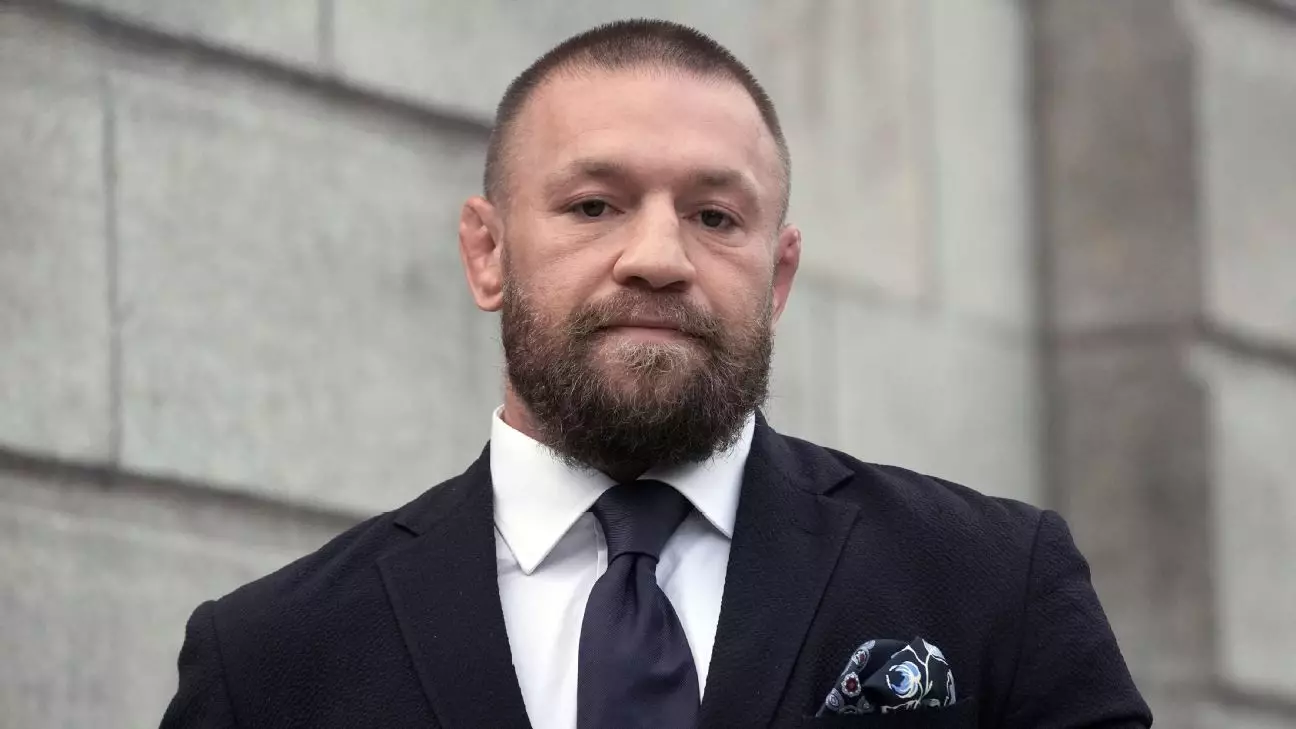Conor McGregor, the former UFC champion and notorious figure in the combat sports arena, is facing a severe backlash following a recent court ruling that found him liable for sexual assault. The implications of this decision stretch beyond McGregor’s personal life and taint the brands associated with him, particularly Proper No. 12 Irish Whiskey, a brand he helped establish in 2018. McGregor’s legal troubles are not only threatening his reputation but are also forcing companies to reevaluate their affiliations, a stark reminder of how celebrity endorsements can quickly become liabilities.
In the wake of such allegations, Proper No. 12 has publicly distanced itself from McGregor, explicitly stating that they will cease to utilize his name and likeness in any promotional activities. This decision underscores a larger trend where brands must react swiftly to potential controversies involving their ambassadors. A significant partnership was effectively dissolved due to a couple of court findings that placed McGregor in a negative light, raising questions about the long-term viability of celebrity-focused marketing strategies.
McGregor sold his stake in Proper No. 12 back in 2021, yet he remained the face of the brand even after relinquishing his financial interests. This scenario speaks volumes about how public perception ties closely with brand identity. For many consumers, a product’s credibility can suffer tremendously when it is linked to a controversial figure. With reports of McGregor’s misconduct making headlines, it’s clear that brands have a difficult path to navigate in maintaining a positive image amidst potential scandals.
Moreover, the decision by IO Interactive, a video game developer, to drop McGregor as a character in their game “Hitman” reflects a growing trend in social responsibility among corporations. Companies are increasingly prioritizing ethical associations over financial gain, often at the expense of lucrative partnerships. The swift action taken by IO Interactive further cements the idea that brands are now more proactively managing their reputations based on the moral standing of their collaborators.
With multiple retailers also pulling McGregor-related products from their shelves, the athlete’s troubles continue to escalate. This situation raises important questions about accountability in the realm of professional sports and celebrity culture. Beyond the immediate financial repercussions for McGregor, this fallout serves as a cautionary tale for others in the public eye. The celebrity lifestyle, often glamorized, can quickly unravel due to improper conduct, leading to substantial declines in brand trust and consumer loyalty.
Interestingly, as McGregor battles to restore his public image and appeal, he faces the added challenge of regaining public sympathy in light of these severe allegations. The sports world circulates quickly, with newer stars emerging and public interest shifting; McGregor’s absence from the octagon since 2021 further exacerbates his dilemma. All these factors combined emphasize a pivotal moment in both McGregor’s personal journey and the broader narrative around the responsibilities taken on by athletes and entertainers as influencers in the public sphere.
The saga surrounding McGregor is one of multiple lessons learned about image, responsibility, and brand integrity. It illustrates that while celebrity can catalyze rapid success, it also lays bare vulnerabilities that can destabilize even the most profitable ventures in the face of personal misdeeds. As Old adages suggest: with great power comes great responsibility, a lesson McGregor and the brands that once heralded him are now learning.

